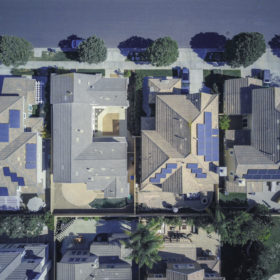Molokai is an island with an interesting history. In the late 19th century a portion of the island was designated as a leper colony, and today much of Molokai is split between large-scale agriculture and uninhabited jungle.
As such there are still few people living on the 260 square-mile island, and its 7,300 residents share a utility with the neighboring islands of Mauai and Lana’i. Like much of the Hawaiian chain, these islands suffer from very high electricity prices, and imported petroleum dominates electricity generation.
In short, it is the perfect place for solar and batteries, and this was not lost on Mike Hastings and Half Moon Ventures, a firm which had previously built projects in Indiana and Rhode Island. Last Monday, the team’s LLC Molokai New Energy Partners received regulatory approval for a contract to sell power to Maui Electric Company (MECO) from a solar and battery storage project on the island.

MECO estimates that the system will generate electricity at 18 cents per kilowatt-hour. While this is a relatively high price compared to many of the large-scale solar and battery projects going online in the mainland, the utility still expects it to save the typical residential customer on Molokai $4.63 per month, and to save $34.5 million in avoided fuel costs over the life of the project.
MECO also notes that the inclusion of batteries will allow the solar to meet evening peak demand on the island, as well as providing grid services.
In its decision approving the contract, the Hawaii Public Utilities Commission (HPUC) stated that the project provides benefits to MECO ratepayers, and that it was important to approve it in order to take advantage of savings through the federal Investment Tax Credit (ITC). However, Commissioner Jennifer Potter expressed concern about the higher cost of the power contract relative to other solar and battery storage systems, as well as noting that the grid benefits provided were hardly unique to this system.
This content is protected by copyright and may not be reused. If you want to cooperate with us and would like to reuse some of our content, please contact: editors@pv-magazine.com.









By submitting this form you agree to pv magazine using your data for the purposes of publishing your comment.
Your personal data will only be disclosed or otherwise transmitted to third parties for the purposes of spam filtering or if this is necessary for technical maintenance of the website. Any other transfer to third parties will not take place unless this is justified on the basis of applicable data protection regulations or if pv magazine is legally obliged to do so.
You may revoke this consent at any time with effect for the future, in which case your personal data will be deleted immediately. Otherwise, your data will be deleted if pv magazine has processed your request or the purpose of data storage is fulfilled.
Further information on data privacy can be found in our Data Protection Policy.